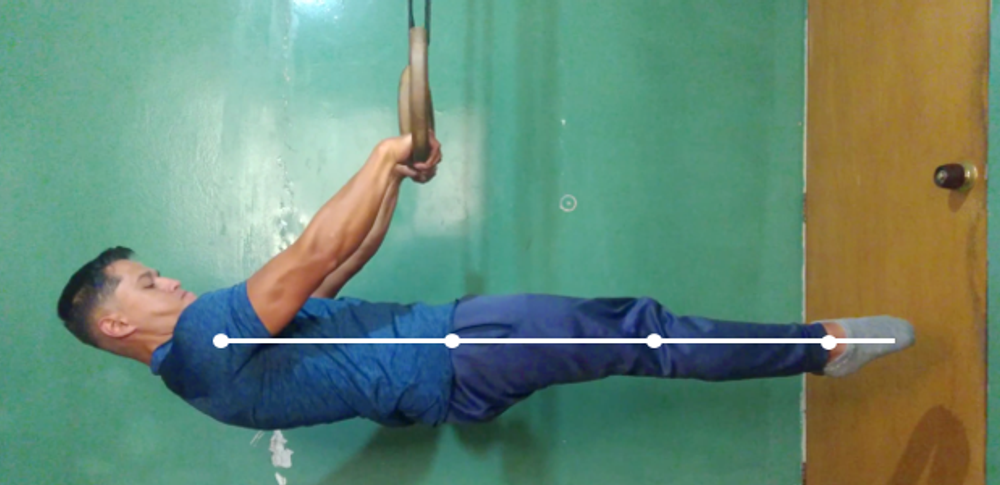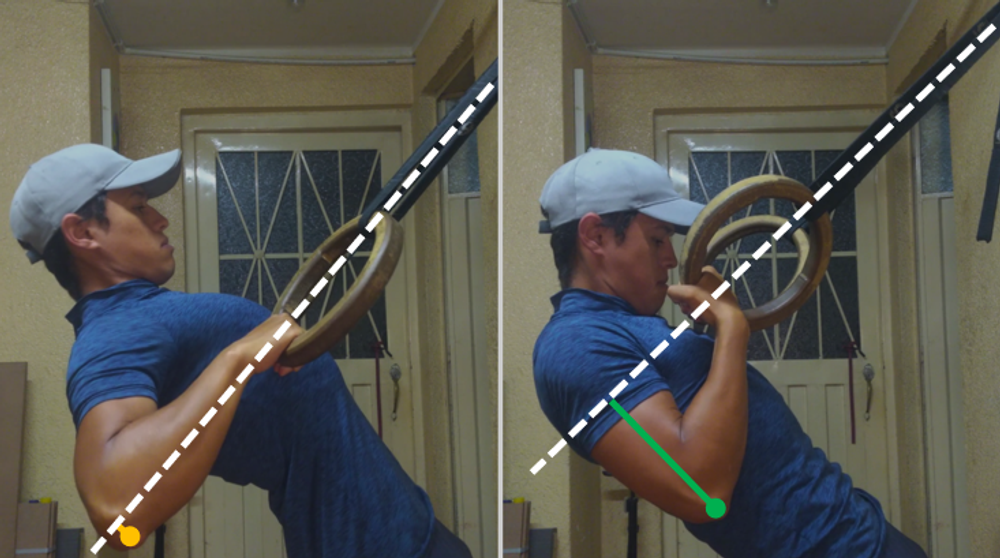
How to achieve your first pull up
Learn how to achieve your first pull-up from scratch with simple progressions, key exercises, common mistakes, and tips to progress faster.

After having heard many times that "I'm bigger and heavier than you, that's why I can't do pull-ups" I decided to try to reliably verify if this is really the case, and the truth is that the result was quite surprising.
Nowadays we have a booming discipline in which we have all the examples we want of people of different weights trying to do pull-ups with the maximum possible added weight. Specifically, I am referring to Street Lifting or Weighted Calisthenics.

In this discipline we have competitions where athletes prepare to do a single repetition with the maximum possible added weight, both parallel dips, squats, muscle ups and pull-ups, which is what interests us in this article.
Specifically, what is interesting is that in Street Lifting competitions the athletes are divided by body weight categories, from the lightest in the -66 kg category to the largest and heaviest in the +94 kg category.
If the logic of "I weigh more than you, it is difficult for me to do pull-ups" or "if I were as skinny as you, I would do many more" were true, it would be logical to see that athletes on the -66 kg. category would be the ones who would lift the most, since they save that extra body weight and can dedicate it to adding more extra kilos of added weight. On the other hand, it would be logical to think that the heaviest athletes, those on the +94 kg. category, would be the ones who would lift the least extra weight, since they have a lot of built in weight on their own body so to speak.
However, the reality is quite different. If we look at the results of the competitions in this sport, we will see a very different trend. Specifically, we are going to analyze the results of the last world championship, held in October 2023 in Germany.
If we analyze the pull-up lifts we can see that the current world record for weighted pull-ups, with a lift of 120 kg., was performed by the athlete known as Ludovic Adamantium, who belongs to the -87 kilogram category, so during the competition he was around that weight. The second heaviest lift was that of the Spanish Pere Coll, with 116.25 kg. in the same weight category.

If we continue analyzing numbers we will see that the next heaviest lifts are in the category higher than -87, which would be -94 kilos, where we saw a lift of 107.5 kg. by the athlete known as Baki HD, with a body weight greater than 90 kg.
To further disprove this hypothesis of "being heavy makes you bad at pull-ups", the next ones who lifted the most weight were not those in the lower categories, but those in the +94 kg heavyweight category with lifts around 100 kg.

From there we would go to lower weight categories, but curiously we do not "jump" to the lighter athletes, but rather we go in descending order from the -80 kg category. passing through -73 and ending at -66 kg. with pull-up lifts that follow a downward trend, with the best lifts in this last light category being around 90 kg.
Therefore we see with real data that this logic of "since I am bigger and heavier than you, I am worse at pull-ups" does not hold true at all, and it is quite the opposite, the bigger and heavier athletes are the ones who lift the most in pull-ups.
Now, the key lies in the composition of that bodyweight. Obviously, if one person weighs more than another because he has more body fat, this will affect his performance in pull-ups. But if that extra weight is simply because he is taller or more muscular, at the same body fat percentage, this person will have an easier time doing pull-ups.
If we wanted to be more precise, the correct excuse could be:
"I don't do pull-ups like you because I'm fatter than you."
"I don't do pull-ups like you because I don't train them"
"I don't do pull-ups like you because I'm not as strong as you."
Regarding the endurance part, the ability to do the maximum possible pull-ups, we do see that the best world endurance athletes tend to be shorter in stature, but normally they are not usually light in weight, but quite muscular.
Top world athletes in pull-ups such as Javi Alés, Jaime Jumper, Max True or Isypov are relatively small in stature, but they have a good amount of muscle mass, which means they can be considered heavy for that height.

It is also clear that taller and therefore heavier athletes generally do not excel as much in endurance.
Still, going back to the initial situation, when a person tells you that "he can't do pull-ups like you because he is bigger and heavier", does not usually refer to the fact that he is not able to do more than 30 pull-ups, but rather refers to the fact that he can barely do a few, or even not at all. So I see the case of maximum strength as more relevant than that of endurance.
Therefore we can conclude that for maximum strength in pull-ups there is a biased correlation towards heavy weight, between 85 and 95 kilos, with a negative tendency towards lower weights. While in endurance this correlation does seem to be biased towards lower weights. As long as we're comparing people with the same levels of body fat.
If you are one of those who used this excuse and now you have just realized that perhaps it is not as valid as you thought, at Calisteniapp we have routines and training programs designed so that you can do your first pull-ups and later be able to do a large number of them. And if you dare, you can even achieve muscle up. Download it and check it out!
Personalized quiz
Answer 7 quick questions and we will recommend the program that fits you best.

Yerai Alonso
Cofundador de Calisteniapp, referente en calistenia y el street workout en Español. Con más de una década de experiencia, es creador de uno de los canales de YouTube más influyentes del sector. Autor del libro La calle es tu gimnasio, campeón de Canarias y jurado en competiciones nacionales e internacionales.
Join our newsletter
Learn everything you need to know about calisthenics

Learn how to achieve your first pull-up from scratch with simple progressions, key exercises, common mistakes, and tips to progress faster.

Master the front lever with this step-by-step guide. Learn everything from correct technique and muscles worked to the most effective progressions and key exercises in calisthenics.

Discover the best calisthenics biceps exercises. Learn how to build arm strength without weights using bodyweight movements, effective progressions, and expert technical tips.
